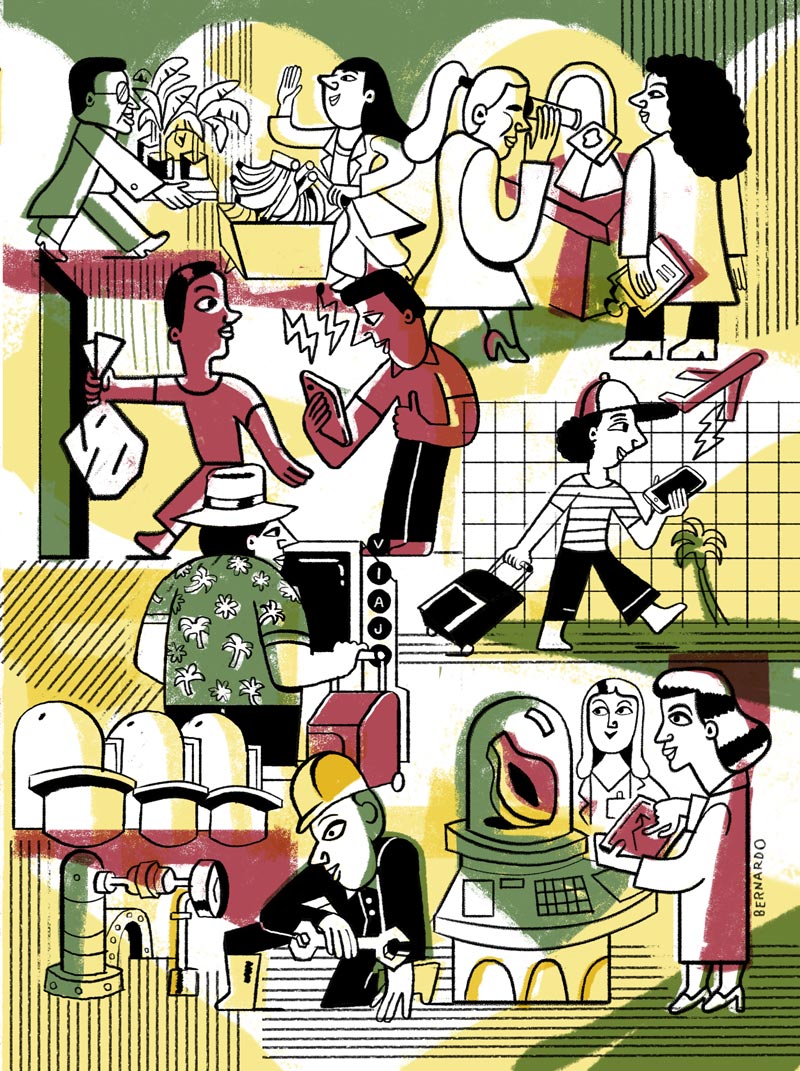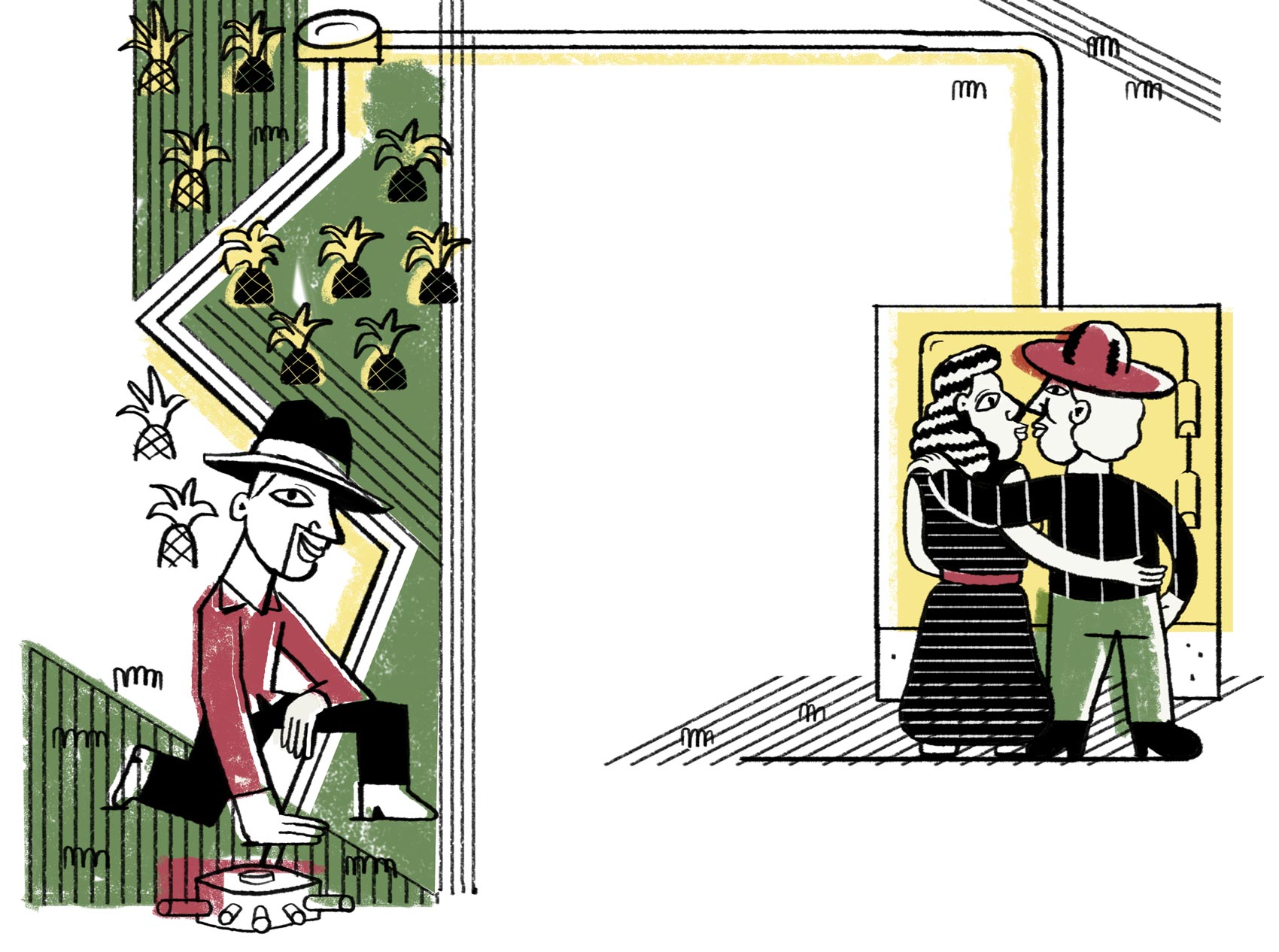With more than 250 companies supported since 2015 and R$15 million in investments, another phase begins for an incentive program for innovation in small and medium-sized businesses in Ceará—Inovafit, organized by the Cearense Foundation of Support for Scientific and Technological Development (FUNCAP). Beginning in 2019, in addition to financial contributions between R$100,000 and R$350,000 to innovative projects, the participants would receive support in the form of mentoring and management training, with a view to increasing the probability of success for the initiatives. “Based on our experience with requests for proposals (RFPs) focused on research and the creation of impact businesses, we observed that we could offer more support instruments to entrepreneurs,” says engineer Jorge Barbosa Soares, director of innovation at FUNCAP and professor at the Federal University of Ceará (UFC).
Inovafit seeks to stimulate growth of small and medium-sized companies that work in the areas of priority in Ceará, such as water resources, education, health, and public safety. “It is an assertive way of associating development in research and innovation with progress in the state,” says engineer Tarcisio Haroldo Cavalcante Pequeno, president of FUNCAP and professor at the University of Fortaleza.
The program is divided into two phases. In the first phase, funding is R$100,000 per project. During this phase, which lasts an average of six months, companies with a maximum of R$10.5 million per year in gross revenue are expected to produce preliminary versions of innovative products or processes they intend to develop. Then, in the second phase following a new selection process, the startup can receive financial support up to R$360,000 over the course of two years. “We want to create a bridge between universities, government and the entrepreneurial ecosystem,” says Jorge Barbosa Soares. Inovafit was inspired by FAPESP’s Innovative Research in Small Businesses (PIPE) program, which by its 20th anniversary in 2017, had already supported more than 2,000 projects in over 1,200 companies in the state of São Paulo, investing more than R$360 million (see December 2017 special edition of Pesquisa FAPESP). As with PIPE, the director of FUNCAP observes that Inovafit funds projects of innovative knowhow that require initial funding to take products and services to market.
A significant number of companies with funded projects in Ceará were able to move from planning to market success. For example, BioClone Produção de Mudas, which is headquartered in Fortaleza, today employs 32 individuals. The company was founded in 2008 by agronomist and professor in phytopathology Roberto Caracas, who identified an unmet need for more resistant seedlings of pineapple, banana, and papaya, which are extremely sought after in the northeastern region of the country. With the support of FUNCAP, trials were developed to discover more productive varieties with a lower incidence of pests. Since 2010, Roberto and BioClone have received close to R$500,000 in financial support from FUNCAP—the majority of these funds have come from Inovafit.
Among the funded projects, the development of a biotechnology platform for the production of cloned cocoa seedlings stands out, as well as the development of cloned virus-free papaya seedlings. In 2013, BioClone received venture capital funding from the Criatec Fund of the Brazilian Development Bank (BNDES). This year, the company’s sales should reach R$1 million, with 2019 anticipated sales of R$1.5 million. “Our customers are small to large rural producers in the region, and we have the capacity to grow our national market share even further,” he says.
Inovafit also supported automation projects in the area of cognitive computation, as well as the development of a platform for recommending tour itineraries proposed by Nex2Me Treinamento e Desenvolvimento de Software, a company based in Fortaleza. One of the company’s partners is computer engineer José Antonio Macedo, professor at UFC. Today, he is developing a support system for public safety with his team comprised of students and researchers in the field. The system is based on the analysis of a large set of data using algorithms and images captured by security cameras and stored in the cloud. “One of the objectives is to more easily identify areas that are susceptible to certain types of crime and the best responses by public agents,” says Macedo. “A startup could arise out of acquired knowledge, which is significantly innovative,” he adds.
Despite the economic downturn and the fiscal crisis at the state level, Ceará has been succeeding in supporting innovation in recent years. While its State Constitution, since 1989, specifies that 2% of tax revenue be assigned to scientific and technological research, the actual percentage has always been lower than this benchmark, ranging between 0.5% and 1%. At the end of 2017, the Ceará government made a commitment to the State Court of Auditors to work toward reaching 2% within 10 years. FUNCAP received this year close to R$87 million, the equivalent of 1.01% of tax monies, representing the greatest transfer level in its history and twice the support of 2017. “This is what allowed the foundation, even while national investment in research dropped, to ensure the maintenance of its support programs, scholarships, and incentives for innovation and to create new action steps,” said president Tarcísio Pequeno.
With this, the range of investments increased. In September, FUNCAP launched the program Cientista-Chefe (Chief-Scientist), which will likely require investment of about R$1.8 million next year. The goal is to bring the academic community closer to government decision makers. Through RFPs, some researchers have already been selected to work in government areas that are considered strategic, such as the Department for Public Safety and the Department of Water Resources, with a focus on scientific and technological development. According to Jorge Soares, one of the program’s inspirations was a discussion that took place in 2015 around the opportunity to create the position of chief-scientist in the departments of the state government of São Paulo, which was the subject of a report by Pesquisa FAPESP in October of that year (see issue no. 236). Another more recent initiative was the launch of an RFP in conjunction with the Natural Gas Company of Ceará (CEGÁS), to stimulate innovation in fundamental areas to increase company sales. CEGÁS will invest half of the funds required.
The RFPs have already been released. In the beginning of 2019, distribution will begin of the R$300,000 per selected project. Mona Lisa Moura de Oliveira, PhD in mechanical engineering and professor at the State University of Ceará, manages a multidisciplinary team that is working on a study about various mixtures of natural gas and biomethane in the process of combustion. The study could reduce impacts and increase the energy efficiency of the process. “This research could create opportunities to develop new sensors responsible for releasing gas,” says the researcher. “Innovations could help us solve the company’s real problems and improve the quality of our work,” confirms Hugo Figueiredo, president of CEGÁS.
This is not the first time in the foundation’s history that it stimulates research of interest to small and medium-sized companies. Back in 2007, the Brazilian Funding Authority for Studies and Projects (FINEP), in partnership with FUNCAP, launched in Ceará the Research Support for Businesses Program (PAPPE), also inspired by FAPESP’s PIPE program.
A management committee comprised of researchers, public officials, and corporate representatives analyzes registered projects. Out of a total of five RFPs, 200 initiatives in Ceará were funded with investments totaling approximately R$21 million.
Computer scientist Sérgio Clério was one of the entrepreneurs who received funding through PAPPE. In 2017, he established a waste management company—Selletiva—to sell software, which he designed while a student at UFC, for tracking the disposal and final destination of garbage. The system works using a GPS and sensors. Reports and graphs are generated and used by the sustainability departments of companies seeking to improve their waste-management processes.
FUNCAP received R$87 million in transfers from the Ceará government in 2018, twice that of the prior year
“Shareholders and customers in general are increasingly more aware of this issue,” says Clério. “There was a lack of reliable systems that track garbage from collection to final destination, whether recycling or landfill,” he explains.
Five years ago, the researcher wrote a business plan for the startup he intended to launch, based on his business school master’s dissertation at UFC, and applied through the PAPPE RFP in 2013. His project was approved. Clério received funding of R$300,000, which was released over 18 months, to develop the software and launch the startup. The business began operations last year. The first customer was a cooperative of garbage collectors in Fortaleza that served various companies in the region. Clério supplied the software at no cost.
“I knew that it would be a way to showcase the company and an excellent opportunity to attract new clients, in addition to achieving a social purpose,” he says. The second customer was Café 3 Corações. Later, Beach Park came on board, one of the largest aquatic parks in the country. This year, the company expects sales to reach close to R$80,000. Projected growth for 2019 is 300%. “We are well along in negotiations with five new clients,” says Clério.
Business administrator Hermanice Nogueira managed a project that brought together entrepreneurialism, technology, and social impact in the semiarid Northeast. She is from the city of Pereiro, in Ceará, which in the past was a production center for fruits such as mango, graviola, and pinha. In recent years, however, a severe drought has affected the farming of various species and changed the region’s landscape. “As an entrepreneur, I could see that there was something we could do about this,” she says. In 2008, she founded the company Nossa Fruta in Fortaleza, specializing in the production of frozen pulp for supermarket chains and wholesalers in the Northeast. In order to increase sales and recover the agricultural industry of Pereiro, the businesswoman and her partner and uncle, José Roberto Nogueira, developed an irrigation project targeting small farmers in the region. The project was approved by the PAPPE program in 2013. “The intention was to ensure income for the farmers, since the company would be responsible for buying the farmed fruit,” she explains. At the forefront of the initiative was a management system that facilitated the irrigation of acerola crops even with little rain, utilizing minimal water to maintain healthy crops. Only 22 days of rain is sufficient to guarantee fruit production for one year.
Nossa Fruta received funding of R$390,000 in 2014 and 2015 to carry out the project, from the construction of cisterns to the development of water-dripping systems in the plantation—35 families of small rural producers were benefited. In 2017, the company employed close to 200 individuals and sales totaled R$17 million. Expected growth for this year is 20% for the sale of frozen fruit pulp, such as mango, pineapple, acai, and cajá-umbu. “The support from PAPPE was important for training many farmers and stimulating the local economy,” she confirms.




